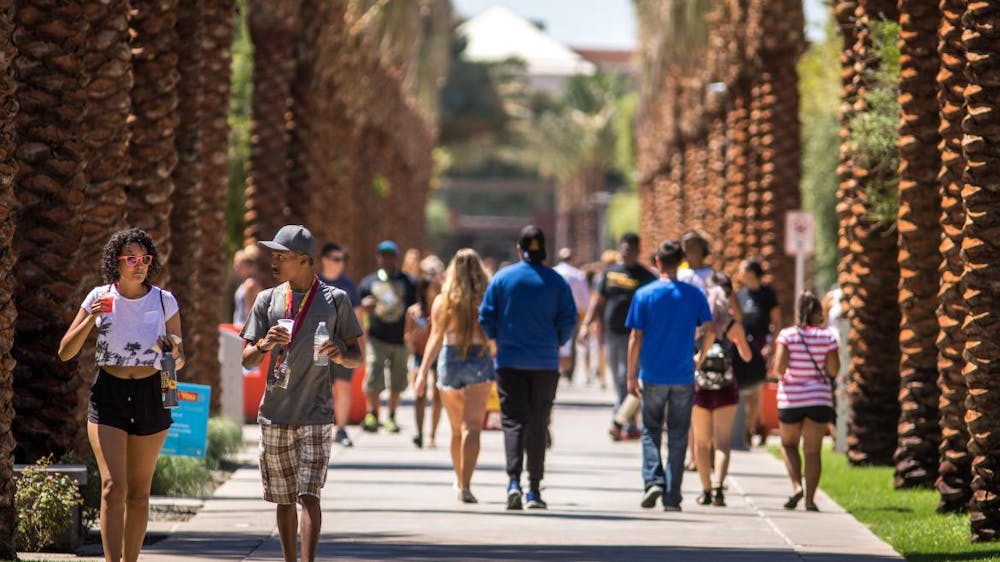With over 110,000 undergraduate students, the Arizona State University “student body” is composed of people from all backgrounds and cultures. So how do all these young adults live together despite their differences?
Due to the size of ASU, many students seek out community, freshman dormitories, clubs and Greek life, which can help students find their “people.”
The Black African Coalition is an organization with the goal of “unifying students of African descent,” according to its website. Director of Public Relations Jayla Perkins” joined because she "wanted to feel connected at a school where only 5.63% of students identify as Black," according to Fox 10 Phoenix.
“I grew up in a predominantly white area, so I was very eager to find other Black students to connect with,” Perkins said. “The BAC ended up being the perfect place.”
In July of 2023, Fox 10 Phoenix reported that 52.9% of ASU students identify as white, and Perkins claims it's easy for minorities at a predominantly white university to feel out of place.
“It is so easy to get lost and feel like you do not belong as a Black student,” Perkins said. “Because of ASU's lack of diversity, especially with Black students, there is a pressure to work harder to feel more comfortable and accepted in places.”
Greek life has been ingrained in ASU’s culture since 1949, when Tau Kappa Epsilon installed the University's first chapter. In 2022, 8% of male students and 10% of female students were involved in Greek life. The University’s history of fraternities and sororities has given it a “party school” narrative in the eyes of many outsiders.
But Kappa Alpha fraternity member Ryan Brown said he doesn’t pay attention to the narratives about Greek life.
“I don't think I would change my mind, I think going Greek was one of the best decisions I’ve made at college,” Brown said. “I've made a lot of friends and great connections, the people that are in it are happy.”
Brown said fraternities and sororities tend to have difficulty breaking predetermined stereotypes because of ‘bad connotations.’
“Words are thrown around and, at the end of the day, everyone’s trying to have fun and trying to be productive,” Brown said. “A lot of the flak that Greek life gets is kind of taken from a small percentile and is used as a stereotype.”
Being an international student, as well, can be a challenge. Moving to a different country poses challenges like language barriers and societal pressure. Business major Anurag Mishra claims moving from India to ASU forced him to mature.
“There's a cultural difference. I would say the people here are a bit more mature than my people back in India,” he said.“It was a bit difficult to come up with that maturity.”
ASU is one of the largest educational institutions in the country. People flock from all parts of the country, but Perkins said incoming students shouldn’t worry about the transition to the University.
“I promise your experience is what you make it so get out of your comfort zone,” Perkins said. “Talk to people, go to events and find your community.”

